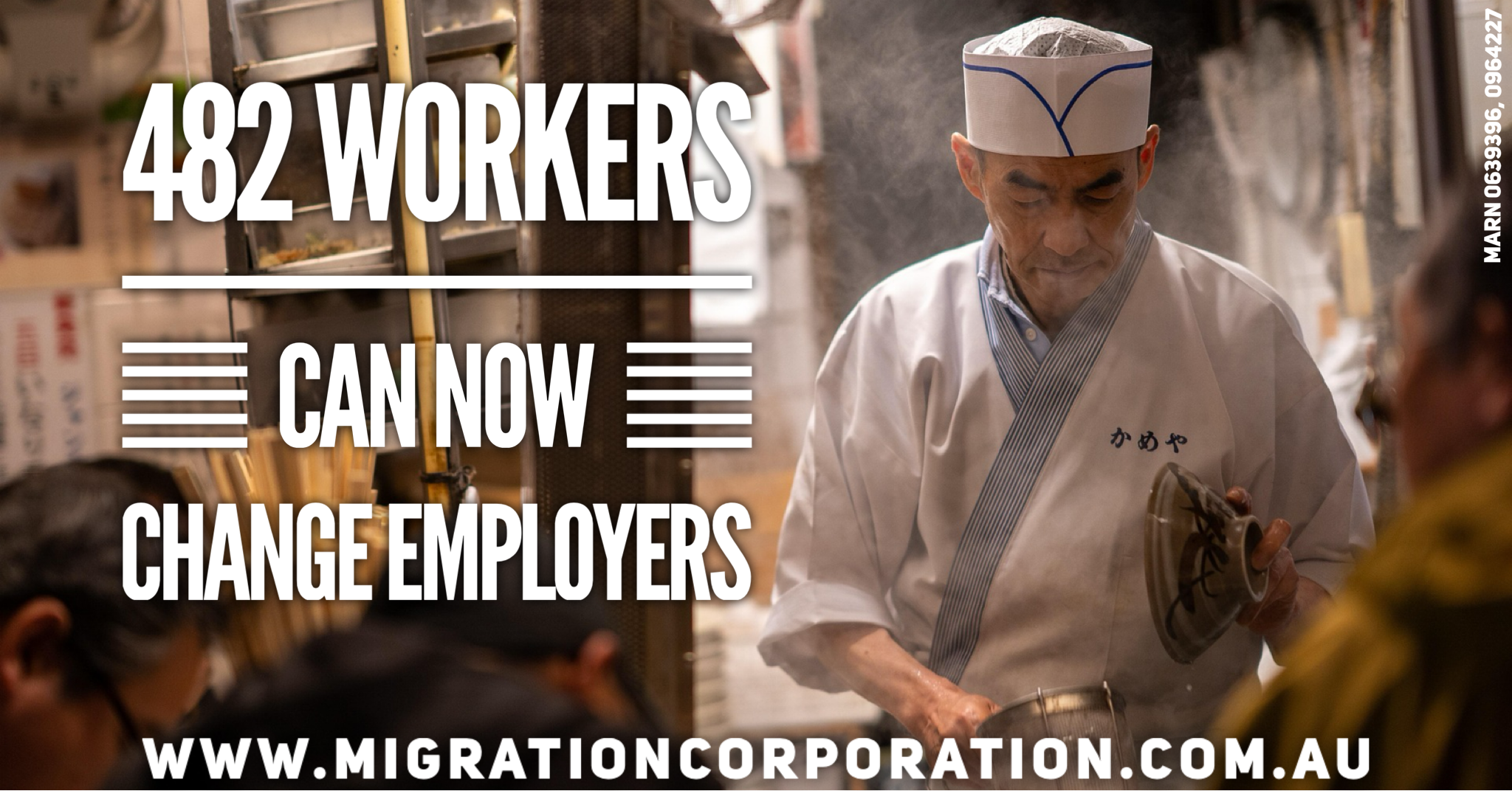Empowering 482 Visa Holders and Employers: Understanding Your Rights and Responsibilities Under Condition 8607

Are you a 482 visa holder feeling trapped in your current work situation? Perhaps you’re dealing with unfair treatment, inadequate pay, or simply seeking a better opportunity. These challenges can be overwhelming—but recent changes to visa conditions have opened new doors for both workers and employers.
Since July last year, updates to the Subclass 482 (Skills in Demand) visa have introduced greater flexibility and protection. These changes are designed to empower skilled workers while helping employers build fair, compliant, and sustainable workplaces.
Why These Changes Matter
Historically, 482 visa holders have faced a power imbalance, often feeling dependent on a single employer for their legal status in Australia. This dynamic has led to exploitation, stress, and limited career mobility. The new regulations, particularly Condition 8607, aim to correct this imbalance by offering more freedom and security.
Employers also benefit from these changes. They now have clearer guidelines for engaging skilled workers and an opportunity to foster loyalty through fair treatment and compliance.
What Is Condition 8607?
Condition 8607 outlines the obligations of Subclass 482 visa holders. Here’s what it means in practice:
- You must work only in the occupation nominated in your most recent 482 visa application.
- Depending on your visa stream:
- Labour Agreement stream: You must work only for the sponsoring employer.
- Specialist Skills or Core Skills stream:
- If your sponsor was an overseas business: You must work only in their business.
- If not: You may work in their business or an associated entity.
- You must start work within 90 days of arriving in Australia or receiving your visa, depending on where it was granted.
- If your occupation requires a licence or registration, you must obtain it within 90 days and maintain it while working. You must notify Immigration if your application is refused or your authorisation is revoked.
- You may take time off between jobs, but:
- No more than 180 consecutive days.
- No more than 365 cumulative days during your visa period.
Importantly, if you stop working for your sponsor, you cannot return to that employer unless a new nomination is approved. You may work for a new sponsor before their nomination is approved, but only within the allowed timeframes.
Changing Sponsors
If you’re not in an exempt occupation under subclause 8607(3), you must secure an approved nomination with a new employer to continue working under your visa. You may also be required to continue working for your previous sponsor to fulfil notice requirements under industrial relations law. This is not considered a breach of Condition 8607.
Greater Flexibility and Protection
These changes mean you can:
- Take up to 180 consecutive days off between sponsored roles.
- Accumulate up to 365 days of time off during your visa period.
- Work for different employers and in various roles—even outside your original occupation—while seeking a new sponsor.
- Leave toxic workplaces and report abuse without the immediate threat of visa cancellation.
A Word from Margie Dizon, Registered Migration Agent
“After working as a Registered Migration Agent and Psychologist for over 18 years, we’ve seen firsthand the struggles faced by 482 visa holders. The previous restrictions created immense stress, forcing individuals to stay in jobs and working for employers out of fear. These new regulations are a significant step forward, offering much-needed relief and empowerment,” says Margie Dizon from Migration Corporation of Australia Pty Ltd.
“Imagine the relief of being able to explore new opportunities without the looming threat of visa cancellation. You can now take the time to find an employer that values your skills and treats you fairly. This also allows you and potential employers to ‘try before you buy’, making it a more fair situation for all involved. Importantly, any time spent not working before July 1, 2024, does not count towards the 180 or 365 day totals.”
“These changes are about more than just job flexibility; they’re about protecting your rights and ensuring a fair go. They give you the power to report mistreatment and seek a better future in Australia. This is a positive change that fosters a more supportive environment for temporary skilled workers.”
“Workers have a choice too. Employers who treat them well will be rewarded with their commitment. I truly believe that workers who are treated fairly will always look after employers who also look after them,” Margie Dizon affirms.
What Employers Should Know
Employers now have a unique opportunity to attract and retain skilled workers by:
- Offering fair and compliant work environments.
- Understanding the flexibility visa holders now have.
- Supporting workers through transitions and nominations.
- Building trust through ethical practices.
Fair treatment is no longer just good practice—it’s essential for maintaining a reliable and motivated workforce.
Your Next Steps
If you’re a 482 visa holder and you’re:
- Considering a change of employer
- Facing workplace difficulties
- Seeking clarity on your visa options
- Exploring permanent residency pathways
We’re here to help. Our team understands the complexities of immigration law and offers culturally sensitive, confidential support tailored to your situation.
Call us at 08 8948 1995 Book a confidential consultation today
Please contact us only if you’re serious about your future in Australia—and ready to take control of it.
***************************
